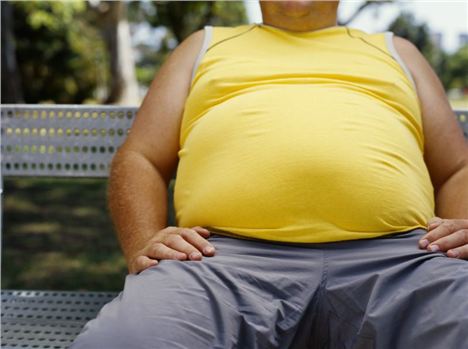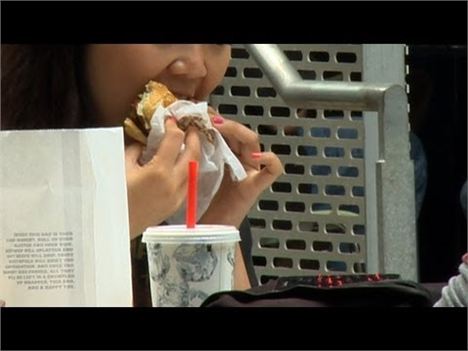WE’RE fat. But you already knew that didn’t you?
Regularly recycled health statistics doing the rounds, such as ‘one third of Americans are obese’ and ‘the NHS spends £4bn a year on obesity’, as astounding as they are, tend to fall on deaf ears. We’ve heard it all before. But when a programme such as ‘The Men Who Made Us Fat’ airs, and you happen to be on that channel, it’s certainly hard for your ears not to prick up.
The first third of this documentary certainly raised issues that reside on the fringes of our consciousness. We know big businesses do not serve our needs but produce them and we know the world’s leading food companies have no interest in our health.
The significant difference with the issue of food, and what makes our ignorance all the easier on a daily basis, is the prevailing idea that we have individual choice over our diets and those who struggle with obesity have only themselves to blame. This documentary, the first of three parts, aims to dispel this misconception by matching the revolution of high fructose corn syrup and hyperactive food marketing by men such as Earl Butz - the American Secretary of Agriculture in the 1970s - with the astronomical rise in weight related health problems.
Of course the title of the show alone is enough to raise the hackles of those who maintain that overweight people simply need to eat less and exercise more. This is a common presumption and one that Samantha, a woman undergoing gastric band surgery and who claims “I do try...I do try to eat fruits”, did little to dispel in part one. The MRI scan the presenter took early in the show, however, put into perspective the insidious effects our modern diets have on our bodies.
Peretti, a man of regular build by any standards, is shown to have between 2-3 extra litres of fat around his internal organs. This is a direct cause of diabetes and cardiovascular disease and a chilling indication that we are not as safe from the effects of the food industry as we may think.
The documentary somewhat laboriously charted the changes in food and the scientific debates which ensued around issues over the cause of heart disease and obesity. The historical data was as superfluous as the endless shots of large behinds on the streets however the importance of this focus, and the real power of the documentary, is in illustrating the phenomenal force food lobbyists have over decisions in government.
Scientists who attempted to draw attention to the deleterious effects of sugar had been thwarted repeatedly since the Fifties and food lobbyists today continue to act against the interests of the general population. As late as 2003 sugar lobbyists threatened to withdraw America’s $406m from the World Health Organisation for publishing global limits on sugar intake.
An eye opening section of the documentary identified the point at which food companies invented the idea of ‘snacking’, a concept which has since been naturalised beyond consideration; a testament to the power of companies to shape lives. Businesses had found a way to turn a necessity as basic as food into a gap in the market. This eradication of the concept of ‘having enough’ is one of their greatest triumphs.
The manipulation of health guidelines by food companies is another fact people tend to willingly ignore, but one this documentary justifiably emphasised. As soon as guidelines on eating habits were formulated companies developed ‘low-fat’ products and used heightened health consciousness to market snacks without any health improvements to the unsuspecting public. Attempts to curtail the consumption of unhealthy foods by the government perversely, and directly because of big businesses, made the global obesity problem exponentially worse.
The first third of this documentary certainly raised issues that reside on the fringes of our consciousness. We know big businesses do not serve our needs but produce them and we know the world’s leading food companies have no interest in our health.
The importance of this documentary, despite its long winded approach, was in its exposing of the planning and coercion that allows food companies to continue pedaling their products that we in turn continue to buy. The documentary ended with the ominous statement that ‘the question is not why there are so many obese people but why there are thin people in an environment that is leading us all to be obese.’ The show was persuasive in eroding the view of obesity as an individual problem but what is left to be said in the following two parts is questionable.
Watch part one of ‘The Men Who Made Us fat’ on BBC iPlayer here. Part two will air on BBC2 at 9pm on Thursday 21 June.
















